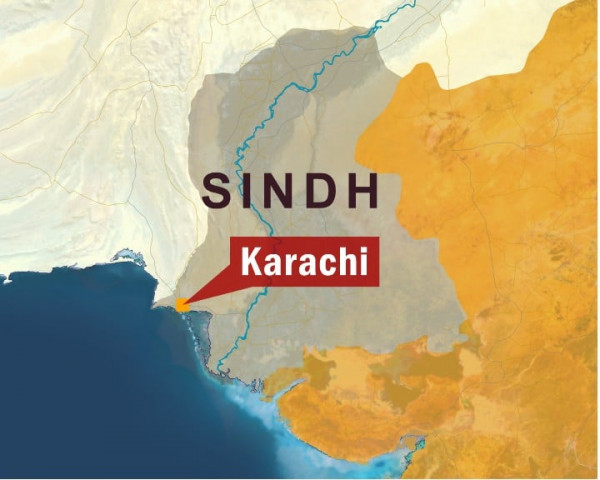Children in slums want to know who let the dogs out
According to the WHO, dogs are behind 99 per cent of deaths in humans by rabies.

Children in slums want to know who let the dogs out
World Anti-Rabies Day was marked in Karachi on Tuesday as hundreds of students from unplanned settlements or katchi abadis demanded protection against stray dogs.
In 2009, more than 15,000 people were brought to the rabies unit at Jinnah Postgraduate Medical Centre (JPMC), which is the largest government vaccination centre for rabies in Karachi.
A large number of people in Pakistan are affected by this disease, which till now has no proper cure. According to Dr Seemin Jamali, a rabies specialist and chief of the accident and emergency at JPMC, it is mostly young children who catch this virus. It is such a lethal disease that a patient can die within 10 days, she added.
An event was organised to mark the day by the Rabies in Asia Foundation and Infectious Diseases Society of Pakistan in collaboration with Behbud Association - Karachi. Participants demanded that proper medical facilities should be provided at government-run hospitals so that doctors can cater to any potential rabies case in their areas.
World Anti-Rabies Day is marked in 120 countries on September 28 every year but Karachi is only waking up to the idea of creating awareness about the deadly disease.
Most of the children at the event were students from primary schools being run by the Behbud Association in Shireen Jinnah Colony, Chanesar Goth and other areas while some were students of a “Bus School” being run by a local physician. The programme was arranged in a park in Shireen Jinnah Colony.
On treatment and prevention
Doctors at the event said that most hospitals are still using the Sheeps Brain Vaccine to treat dog bite even though this vaccine is considered obsolete by most health experts. “It is unfortunate that despite the WHO’s recommendation against the Sheeps Brain Vaccine and the vaccine’s poor and questionable efficacy, we continue to use it,” said Dr Nasim Salahuddin, president of the Infectious Diseases Society of Pakistan.
Doctors recommended using the Rabies Immunoglobulin (RIG) and demanded that this new vaccine be provided to them. The programme also included skits performed by the young children, who demanded through their playacting that the government must get rid of the hordes of stray dogs in their areas.
Meanwhile, parents suggested that people should be educated about the disease and its prevention through electronic media presentations.
The programme was a good start because the presence of experts helped to clear misconceptions and to learn some basic tips on how to treat a dog bite.
“The wounds must be immediately washed with soap and flowing water for 10 minutes at least,” Gulrukh Bano, a mother at the event, said, proudly revealing her newfound knowledge.
She alleged that often healthcare providers at clinics in her area did not know this.
Dr Salahuddin assured that the association will hold a series of continuing education programmes for health workers serving at the community level. She also urged parents to ensure that once the doctor decides to give the vaccine to a patient, the entire course must be completed. The vaccine is recommended and administered only if the bite wound is deep or on the face, neck or hand.
Animals that can carry rabies, and transfer it to humans by biting them, include dogs, cats, foxes, horses, donkeys and bats.
“People should have their pets vaccinated against rabies, thereby keeping themselves safe from this disease,” Dr Jamali said.
Minister expresses concern over stray dogs
Adviser to Sindh Chief Minister Sharmila Farooqui expressed concern over the rising number of stray dogs roaming in relief camps. She urged the city government and health department to take steps and ensure that people, especially children, are kept safe from dog bite.
She visited the Tent City for flood affectees at Musharraf Colony on Tuesday in connection with the World Anti-Rabies Day.
According to the annual report of the WHO, 150,000 people in Pakistan are bitten by dogs. Of these, around 2,000 to 5,000 die.
With additional input from Kiran Naz
Published in The Express Tribune, September 29th, 2010.



















COMMENTS
Comments are moderated and generally will be posted if they are on-topic and not abusive.
For more information, please see our Comments FAQ